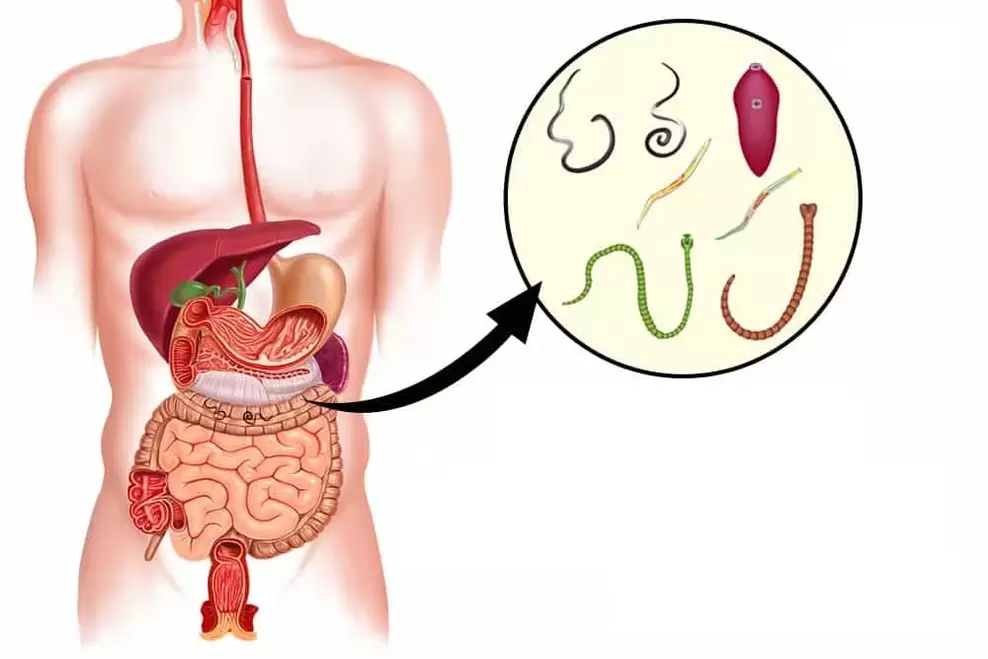Worms are parasitic worms found in the human body or in the body of animals. They have a negative effect on the whole body, or on certain organs, which adversely affects health.
Cause
The disease manifests itself in different ways. This is influenced by which species of worms, where their bodies are located and how many. Helminthiasis is often characterized by weight loss, physical weakness, dizziness, and irritability. If the worm is located in the intestine, then this is accompanied by constipation, diarrhea, nausea with the possibility of vomiting.
During parasites in the liver - skin tone and icteric edema; if in the lungs, the appearance of cough and nasal discharge. With any type of disease, activity and performance can be reduced. For children, there may be disturbances in the child’s mental and physical development, stunting, puberty and memory problems. The disease is provoked when helminth eggs enter the human body. We can get it through dirty fruits and vegetables, half-cooked meats and fish, and the most common are unwashed hands.

Symptoms
Infection of a person with worms, depending on its type, can occur when eating the meat of poorly cooked animals infected with eggs and larvae, or when eggs and larvae enter the human body, its development occurs in the soil. Here they develop into adults.
The number of worms in the human body with advanced disease can be very large. Adult worms and their eggs can be removed from the human body along with feces, which is the main symptom in identifying the cause of the disease. In addition, there are more complex diagnostic methods based on blood, sputum, etc. tests, performed in the hospital. When infected with worms, it can:
- malaise and general weakness;
- rapid fatigue, increased or decreased appetite;
- nausea, vomiting, sharp abdominal pain, rapid weight loss;
- diarrhea with release of worms in the stool;
- itchy sensation in the anal area;
- sleep disorders.
Diagnostics
To determine how to treat worms, pediatricians prescribe:
- general analysis of stool;
- general blood analysis;
- Intestinal X-ray examination;
- scraping the skin from the perianal area.
The following worms are most commonly found in humans: cream worms, tapeworms associated with tapeworms, various types of tapeworms (tapeworms) associated with tapeworms (tapeworms). The main causes of infection are dirty hands, unwashed fruits and vegetables, untested food, contaminated water, and flies.
Treatment
Treatment needed for worms includes:
- antiparasitic drugs;
- sorbent;
- enzyme;
- immunomodulator;
- hepatoprotectors.
If you do not determine in a timely manner how to get rid of worms, there is a risk of complications:
- Jaundice;
- intestinal obstruction;
- pancreatitis;
- purulent skin lesions;
- anemia.
Prophylaxis
To prevent infection and spread of ascaris, you should adhere to the rules of personal hygiene, wash hands, vegetables and fruits thoroughly, and keep the toilet clean. In order not to face the problem of how to get rid of worms in the future, it is recommended:
- adhere to the rules of personal hygiene;
- wash the product thoroughly before use;
- carry out the necessary heat treatment of meat, fish, seafood before eating it;
- keep an eye on children during play (so as not to take objects off the floor in their mouths).






































